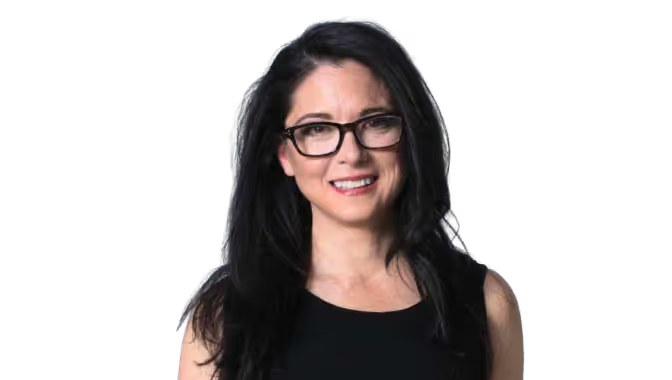

Jay Shetty & Dr. Vonda Wright ON Formula to Lose Weight
Jay Shetty sits down with Dr. Vonda Wright, a board-certified orthopedic surgeon, published author, and internationally recognized expert in active aging and precision longevity. With decades of clinical experience and scientific research, Dr. Vonda Wright challenges the cultural assumption that aging means inevitable decline. She asserts that the frailty we associate with older age is not biological destiny, but the cumulative result of poor habits and disconnection from our bodies.
What if everything you've been told about aging is wrong—and the decline we fear is actually optional?
Jay Shetty sits down with Dr. Vonda Wright, a board-certified orthopedic surgeon, published author, and internationally recognized expert in active aging and precision longevity.
With decades of clinical experience and scientific research, Dr. Vonda Wright challenges the cultural assumption that aging means inevitable decline. She asserts that the frailty we associate with older age is not biological destiny, but the cumulative result of poor habits and disconnection from our bodies. Instead, she advocates for a new narrative: one where people actively shape their healthspan through strategic choices around sleep, movement, and nutrition starting as early as their 20s.
Redefining Aging
Dr. Wright challenges the widespread belief that aging equals inevitable decline. She told Jay Shetty that many issues that arise later in life, such as frailty, reliance on numerous medications, and reduced independence, are not predetermined by biology but the result of accumulated lifestyle choices and disconnection from our bodies. She emphasizes that people can thrive well into their 70s, 80s, and beyond if they begin taking intentional steps now.
The surgeon argues that our societal perceptions of aging are limiting. It's common to hear people expressing regret about turning 30, 40, or 50, as life often seems to move downhill from there. Dr. Wright told Jay Shetty we should embrace aging rather than fear it. Time will pass regardless of whether you like it or not, so what matters is to start investing in your health. You can alter your biological trajectory by focusing on consistent sleep, movement, and proper nutrition.
Health Priorities in Your 20s and 30s
Dr. Wright emphasized that your 20s and 30s are critical for establishing habits that will promote lasting health. Biology is still on your side during this period—you're energetic, resilient, and generally disease-free. Yet many young adults don't start preparing for old age. The surgeon encourages the listeners to resist the temptation of late-night partying and processed foods; instead, focus on getting quality sleep, eating mindfully, and staying active.
Dr. Wright told Jay Shetty that while being young helps recover faster from bad habits, the long-term repercussions will manifest later in the form of fatigue, weight gain, and decreased mobility. She recommends enforcing self-discipline on weekdays and keeping weekends for leisure, rather than living every day like a party. The habits you build during your youth will either support or sabotage your health a decade later. You don't need to do it perfectly, but you need to start until these new, healthier habits become automatic.
The Critical Decade 35–45
According to Dr. Wright, between the ages of 35 and 45, our bodies start to decline, including muscle mass loss. She explained to Jay Shetty that we can observe the initial tangible decline on a cellular level: stem cell regeneration slows, the clearance of toxins becomes less efficient, and protein synthesis declines. The surgeon refers to this decade as the crucial turning point in our health. If you're already in good shape, you are likely to age well; however, if you are exhausted and metabolically unstable, midlife will be more challenging.
Dr. Wright told Jay Shetty that people need to focus on quality sleep, retaining and building muscle mass and bone density. These three pillars set the foundation and impact other changes:
- Sleep has a significant impact on mood and cognitive function.
- Strong muscles prevent insulin resistance and preserve function.
- Bone density declines rapidly after the age of 30, and it is essential to maintain it for better mobility.
If you start addressing these three areas today, you have better chances of slowing down the bodily decline, such as chronic illness, mobility, and cognitive issues.
Sleep Disruption in Midlife
Women may experience sleep disruption around the ages of 40-45 due to lower estrogen levels. These hormonal changes can cause hot flashes, insomnia, and waking up during the night, often around 3 or 4 AM. Besides being inconvenient, this disruption of the circadian rhythm also compromises other aspects, such as muscle development or emotional balance.
Men also experience a decline in testosterone after the age of 40; however, it is less sudden than for women. This hormonal change impacts how men sleep, too, and, subsequently, energy levels. Dr. Wright explains to Jay Shetty that keeping a consistent schedule (going to bed and waking up at the same time every day) helps stabilize the circadian rhythm. The surgeon also suggests refraining from consuming alcohol and large meals before bedtime because both can interfere with deep sleep. Additionally, magnesium supplements are helpful, as well as taking progesterone in the evening (for women).
Sleep Hygiene
Dr. Vonda Wright discussed with Jay Shetty the concept of sleep hygiene. According to her, it is about consistency, depth, and quality, rather than focusing only on the hours count. You need to establish a regular schedule of going to bed and waking up to realign your biological clock. Try to get exposed to the sunlight in the morning to help regulate melatonin production. Moreover, make sure to avoid screens and stimulating content in the evening, and find offline ways to wind down before sleep.
Dr. Wright also told Jay Shetty that food consumption before sleep impacts its quality, too. She recommends finishing meals at least three hours before bedtime to reduce the digestive load and improve sleep. Moreover, the surgeon advises against using alcohol as a sleep aid; although it may help you fall asleep faster, it prevents progression into deep sleep, the restorative stage. To get better rest, she suggests developing non-stimulating rituals before bed, such as a hot cup of tea, listening to soft music, or journaling.
Nutrition and Blood Sugar
Dr. Wright told Jay Shetty that nutrition doesn't just mean maintaining weight, but also involves addressing inflammation, blood sugar, and energy levels. She advocates for a diet consisting of whole, unprocessed foods, highlighting the importance of protein for muscle repair, healthy fats for brain and hormone support, and fiber to stabilize blood sugar. Conversely, try to avoid excess sugar, seed oils, and processed snacks because they fuel inflammation and accelerate aging.
The surgeon shares with Jay Shetty her personal experience with the use of a continuous glucose monitor (CGM). Her goal was to lower the glucose levels below 85mmg/dL - research has shown that levels above this value are linked to a higher risk of diabetes or cognitive decline.1 She encourages the listeners to treat food as a form of information - each bite can enhance or compromise your health. Moreover, the surgeon explains that diet is not about restriction but about taking control.
Hormones and Brain Health
Hormones play a crucial role in our health, influencing not only mood swings and reproduction but also brain health, energy, and longevity. Dr. Wright explained to Jay Shetty how the brain's receptors for estrogen and testosterone affect cognition, memory, and emotional regulation. She opened up about her own experience of estrogen withdrawal during perimenopause, which resulted in mental fog and remembering common surgical terms.
Dr. Wright emphasizes that hormones don't function independently; physical activity, stress management, and diet play a crucial role in maintaining hormonal balance. Simple exercises such as daily walks have been shown to increase the hippocampus, the brain's memory center. The surgeon advocates for making this information more widely available, especially for women, who are disproportionately affected by hormonal changes.
Preventing the Fall Before the Fall
One of the greatest risks to independence for an aging person is falling. Dr. Wright told Jay Shetty that many older adults end up in nursing homes from preventable injuries rather than because of health issues. The primary reasons for the falls include poor balance, muscle weakness, and stiff joints. All these conditions are something that needs to be addressed in early and mid-life already, to prevent them from becoming your demise. The surgeon emphasized that mobility is more than just flexibility - it includes coordination, stability, and neuromuscular communication.
To keep your body healthier for longer, Dr. Vonda Wright recommends a series of exercises:
- balance - standing on one leg while brushing your teeth;
- range of motion - dynamic warm-ups before workouts;
- spatial awareness and quick reaction time - exercises such as mini-hurdles or lateral footwork;
The surgeon urges the listeners not to wait until midlife to work on balance. She explained to Jay Shetty that mobility is a function that needs constant maintenance; taking care of this aspect of your health is one of the most effective strategies to safeguard your independence well into old age.
Your Future Self Will Thank Present You
Few people talk about the emotional readiness to take action. Dr. Vonda Wright explained to Jay Shetty that many people find it challenging to take action, although they are well aware of what they need to do to improve their well-being. She notes that caregivers, parents, and high achievers tend to place their well-being last, while prioritizing others. Yet she warns that you can't pour from an empty cup.
Dr. Wright shares with Jay Shetty that many people choose to unwind by watching late-night TV, scrolling on social media, or consuming alcohol, all of which negatively impact sleep, metabolism, and concentration. Instead, the surgeon suggests creating emotionally supportive routines that acknowledge that your future self is worthy of your present efforts. Emotional wellness means setting boundaries, respecting your energy, and making decisions to affirm your worth.
Dr. Wright insists that aging is not a passive decline but a series of choices that shape the next decade, and the one after that. She stressed to Jay Shetty that every small action matters: a stroll, a glass of water, a restful night. These choices compound over time, shaping the future of your health. Take care of your muscles and bones, and find joy in everyday moments, pride in progress, and gratitude for the ability to age.
More From Jay Shetty
Listen to the entire On Purpose with Jay Shetty podcast episode “Dr. Vonda Wright: Formula to Lose Weight and Gain Muscle (Why your Current Workout is Not Giving You Results)” now in the iTunes store or on Spotify. For more inspirational stories and messages like this, check out Jay’s website at jayshetty.me.
Sign up for the only email that puts purpose at the center of your day.




Looking for greater meaning? This quiz shows you how to live with purpose every day.
Take the Quiz
Dreaming of becoming a life coach? This quiz tells you if a coaching career is right for you.
Take the Quiz

Dreaming of becoming a life coach? This quiz tells you if a coaching career is right for you.
Take the Quiz

Everyone communicates differently. Discover your own personal fight style now.
Take the Quiz

Understanding your role in a relationship is the first step to making things work.
Take the Quiz

